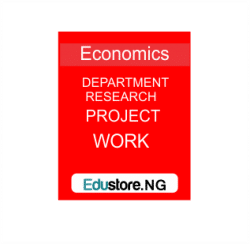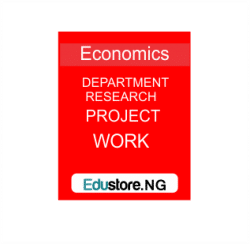Abstract
The objective of the study is to examine empirically the impact of financial intermediation on the real sector of the Nigerian economy with the aim of determining the impact of financial intermediation on the real sector growth. Both theoretical and econometric analysis are used in this study to examine the impact of financial intermediation on the real sector growth; using real GDP growth rate as the dependent variable and credits to private sector (CPS), average manufacturing capacity utilization (AMCU) and inflation rate (INFR) as independent variables from 1980-2012. The study employs time-series methods of unit root test, co-integration test and vector error correction (VEC) model. The study establishes that credit to private sector contributes significantly to real sector growth in Nigeria. The study also establishes that both average manufacturing capacity utilization and inflation rate do exert any significant effect on real sector growth in Nigeria. The Adjusted R-squared value is 0.99. The study recommends that public policies to stimulate the supply of basic infrastructure, reward DMBs for providing large loans to private sector, improve security of lives and properties and discipline monetary and fiscal policies in order to enhance real sector growth.
DOWNLOAD COMPLETE WORK- For Reference Only: Materials are for research, citation, and idea generation purposes and not for submission as your original final year project work.
- Avoid Plagiarism: Do not copy or submit this content as your own project. Doing so may result in academic consequences.
- Use as a Framework: This complete project research material should guide the development of your own final year project work.
- Academic Access: This platform is designed to reduce the stress of visiting school libraries by providing easy access to research materials.
- Institutional Support: Tertiary institutions encourage the review of previous academic works such as journals and theses.
- Open Education: The site is maintained through paid subscriptions to continue offering open access educational resources.





